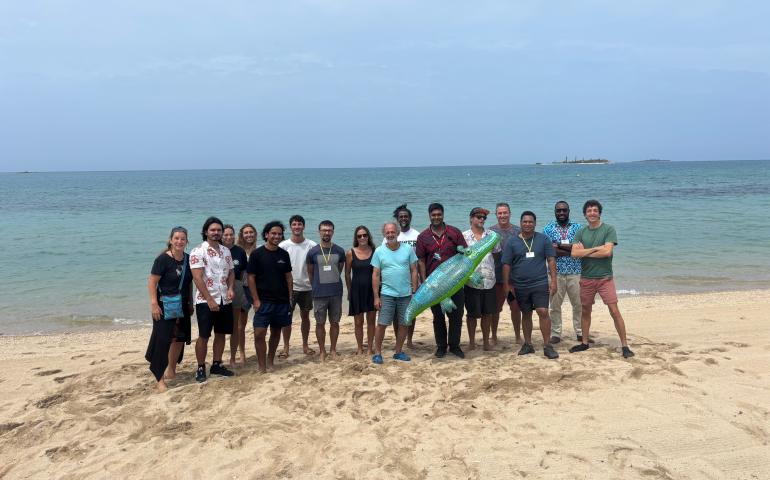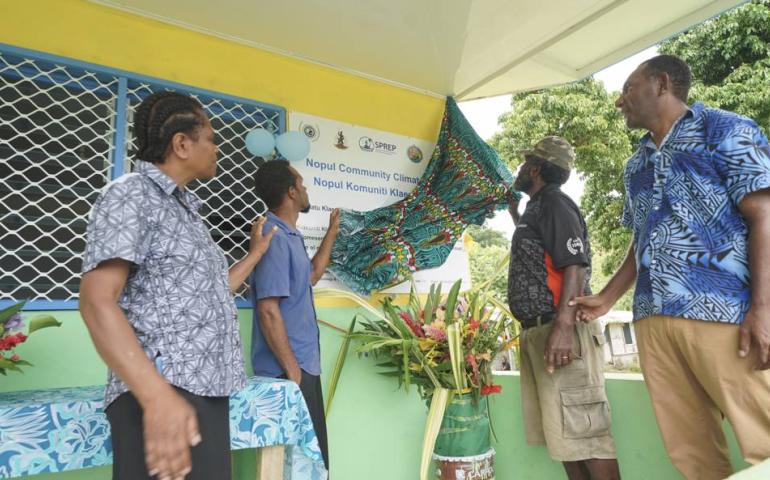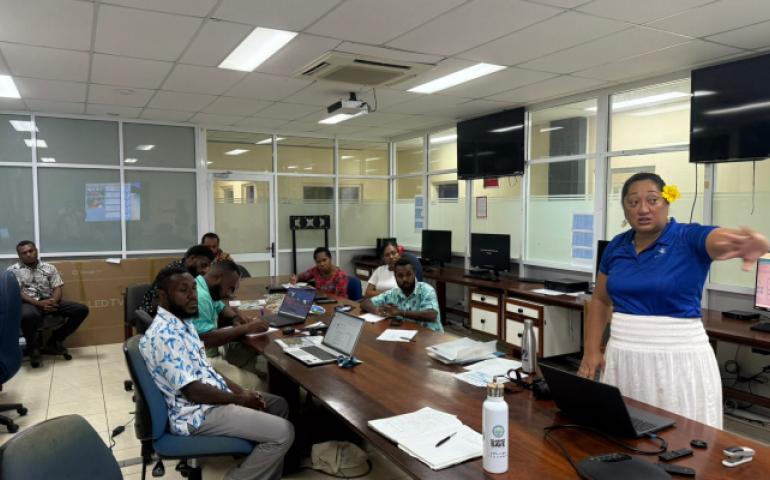National Climate Outlook Forums (NCOFs)
National Climate Outlook Forums (NCOFs) are a WMO initiative to enable countries to realize the benefits of climate information services. Climate services involve generating and making available to users a set of historical, real-time and prospective information products concerning climate variability and change along with information about their impacts. Delivery of these services has to be accompanied by assistance in their interpretation and in identifying a sensible set of decision options through a participatory process, while enabling mutual feedback so that ways of improving services can be identified on an on-going basis.
NCOFs aim to link climate information being generated by National Meteorological and Hydrological Services (NMHSs) with stakeholder institutions and their decision-making processes to improve application of climate information, particularly the seasonal scale climate outlooks. The forums also assess the generation and use of climate information in a national context to identify capacity gaps and create a regular platform to bring together users and generators of climate information.
WMO have produced Step-by-Step Guidelines for Establishing a National Framework for Climate Services and Guidance on Good Practices for Climate Services User Engagement which both strongly endorse the running of regular NCOFs as key mechanisms for engaging with stakeholders.
NCOFs held in the Pacific Islands Region
The following NCOFs have been held so far:
- Vanuatu, 14-15 March 2015
- Papua New Guinea, March 30, 2015
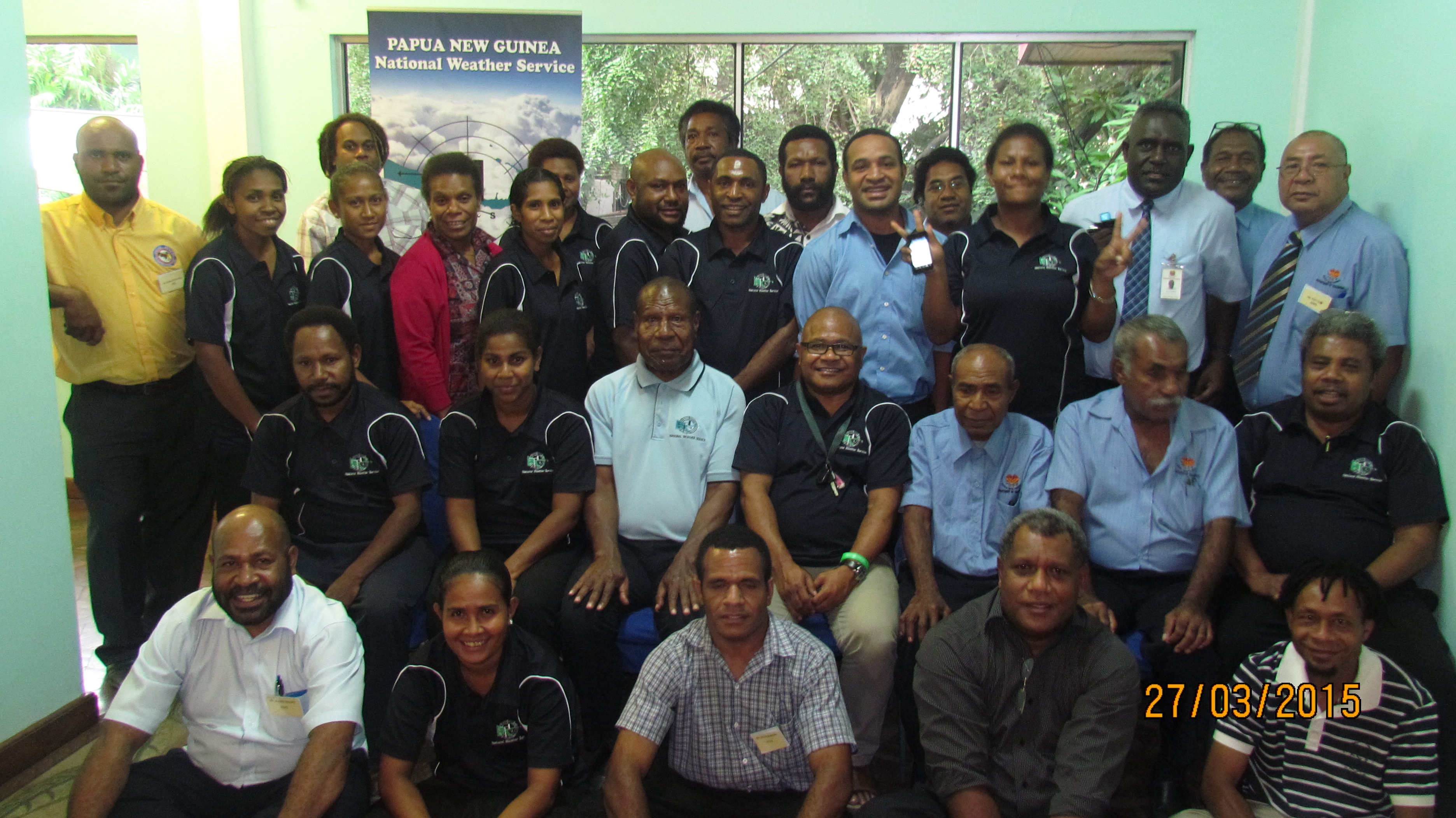
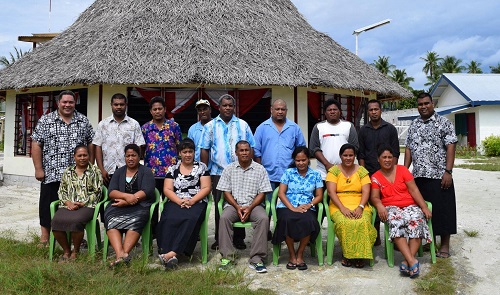
- Tarawa, Kiribati, 1-2 September 2015
- Vanuatu, 23-24 October, 2017
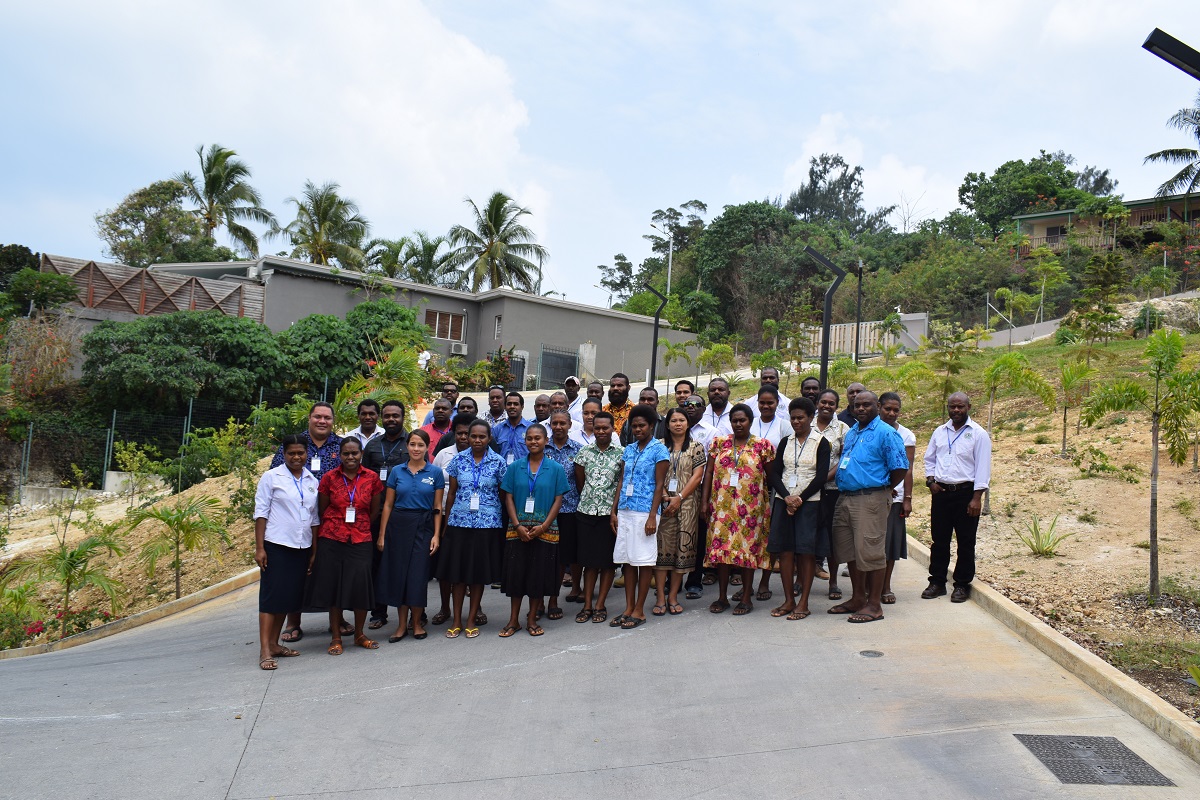
The PICS Panel has produced a report on Lessons Learned from NCOFs in the Pacific Islands Region. Based on the NCOFs held in Papua New Guinea, the Republic of Kiribati, and Vanuatu, the following key lessons have been learned:
- The cost of planning and running an NCOF in the Pacific Islands region is often high, due to the challenges of bringing some stakeholders large distances from outer islands as well as bringing resource people from other countries to a centralised location. Financial and logistical support is therefore often required, which may be obtained through specific funding proposals or, ideally, included in the annual budget of the Meteorological Service;
- A 2-day NCOF should be combined with another activity (e.g. a consultation workshop) to maximise the utility of resource people (including consultants) and minimise costs associated with travel;
- NCOFs should be held as frequently as possible, given financial constraints. Ideally they should be held annually or biannually, and be timed to coincide with the Pacific Islands Climate Outlook Forum (PICOF), which is a regional event held in late September or early October every year;
- Stakeholders attending NCOFs should be asked beforehand to think about how the weather (including longer time scale events like drought, high sea levels, and warmer or cooler than normal seasons) have impacted them in the past. This might include impacts on fishing, boating, agriculture, fresh water supply, disease outbreaks, tourist numbers, electricity supply, housing and infrastructure. Sharing of these experiences at the NCOF is to be strongly encouraged;
- All efforts should be made to have the same people attend the NCOFs every year or two years. New people can and should be invited as well, but it is vital that there is a core of stakeholders who re-engage with the NMHS staff on a regular basis. If possible, these people should be invited to other more regular events as well, such as climate briefings;
- A vital component of the NCOFs should be discussing mechanisms of disseminating information, particularly to communities. These mechanisms often include “intermediaries” such as through church networks, central and provisional government channels, and non-governmental organisations. If intermediaries are used, then it is very important they are well briefed and fully understand the nature of the climate information;
- Most stakeholders relate more to sector-specific information, with forecasts based on probable impacts (e.g. on drinking water quality and the risk of diseases). The second day of NCOFs should focus on the translation of climate outlook information from NMHSs into impact-based forecasts. Ideally, such translation should be done at the sector level (e.g. by employees of the Ministry of Health, or Agriculture, or Water Resources, or by staff at NGOs), with the tailored information then incorporated into their own newsletters or updates;
- Time should be devoted at the NCOF to designing a simplified (e.g. “community level”) climate bulletin, which would include key messages (in the local language) and pictures. The NMHS staff should commit to producing this bulletin every month for a trial period (e.g. one or two years), and then evaluating its effectiveness at the next NCOF;
- Lastly, feedback on the usefulness of climate information and forecasts is often difficult to receive. NCOFs are the ideal forum for asking the question: “How did you use this information, and was it useful to you?” Furthermore, participants should be asked to evaluate the NCOF itself. Such feedback is vital for NMHSs to justify the costs for running these events.
Vanuatu Fifth National Climate Outlook Forum (NCOF-5)
Dates: 30 October - 03 November 2023, Luganville, Santo
Sector Focus: Agriculture

Vanuatu Sixth National Climate Outlook Forum, 21-25 October 2025.
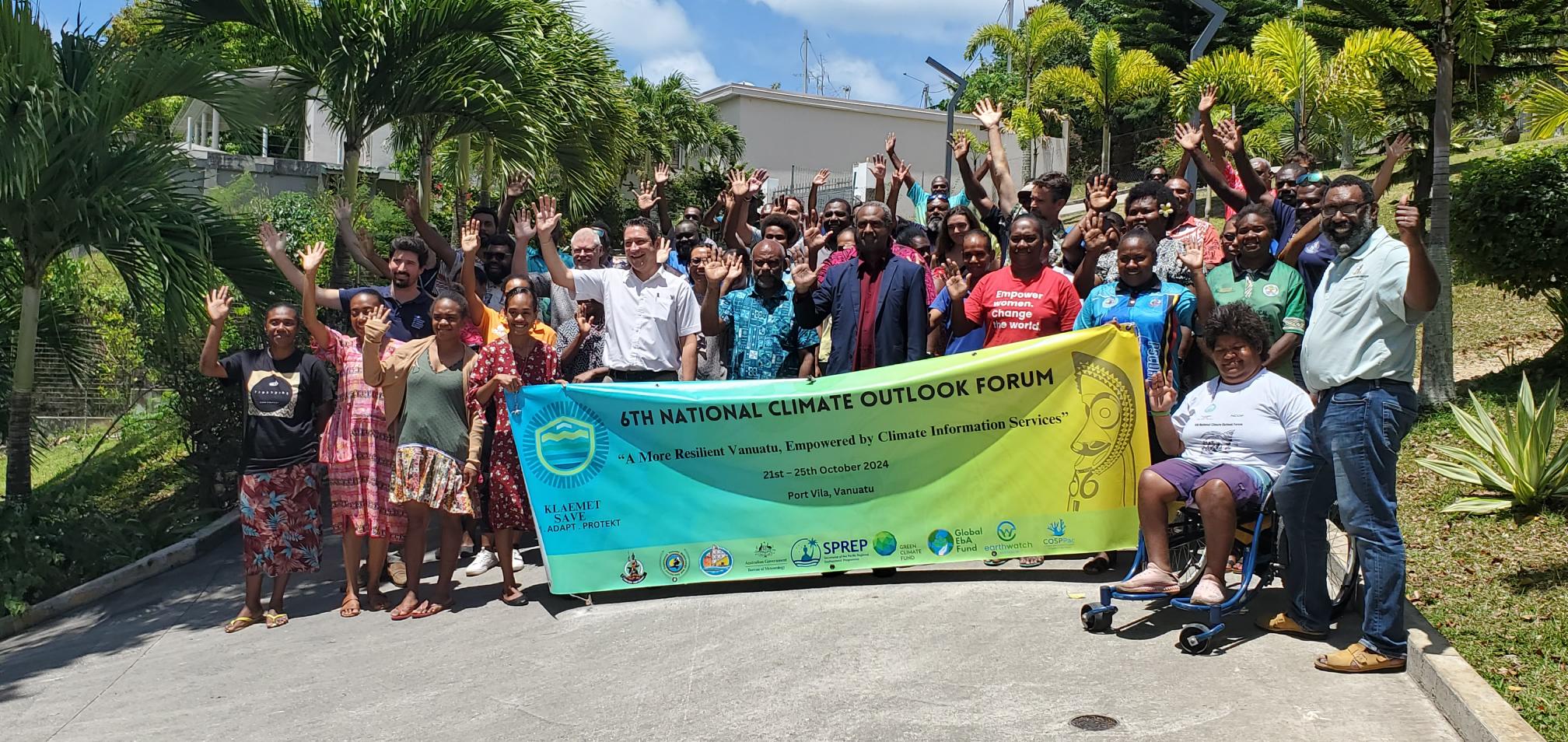
Photo: SPREP/VMGD
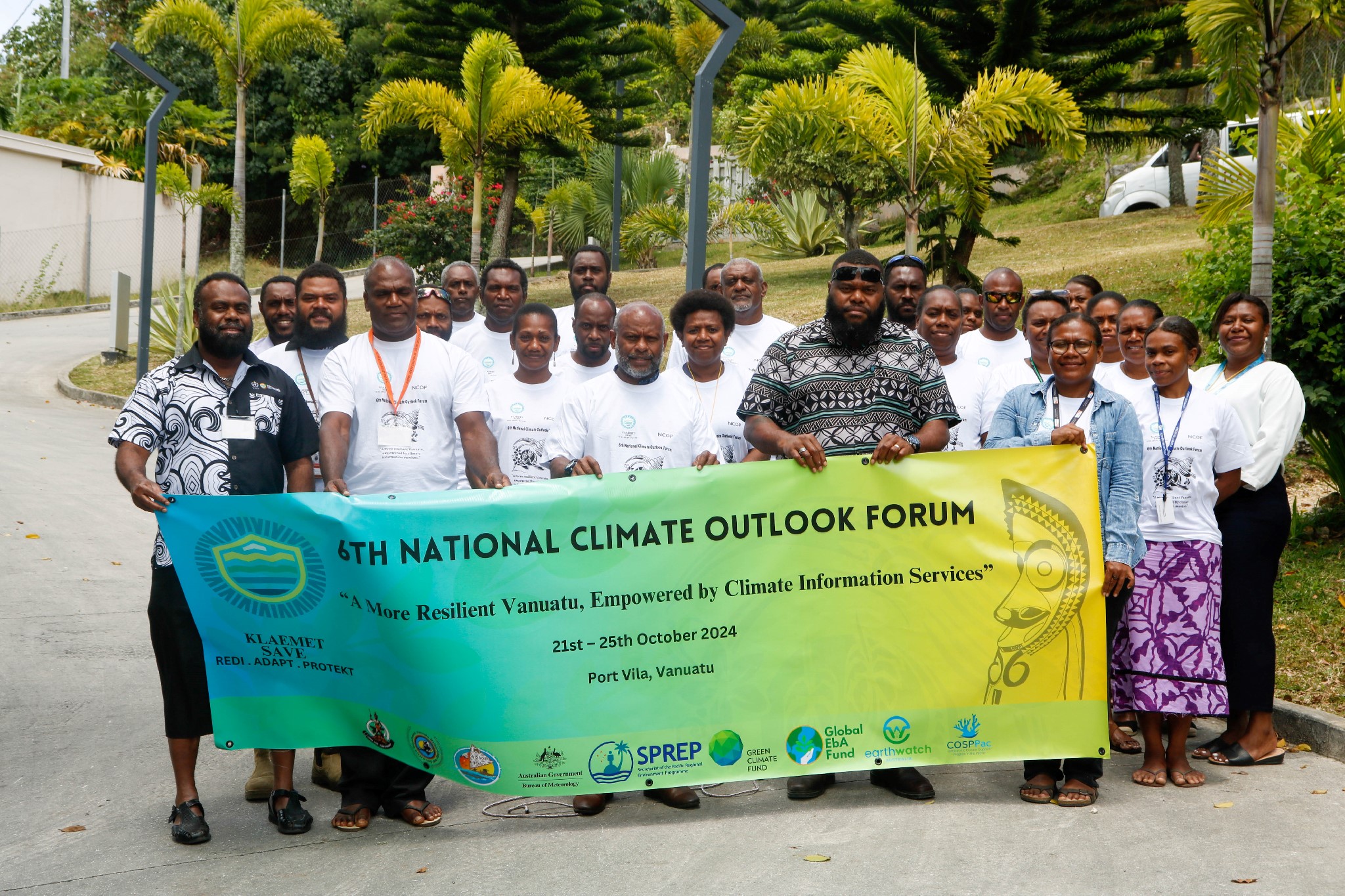
Photo: Sunny Kamuta Seuseu, SPREP/VanKIRAP

